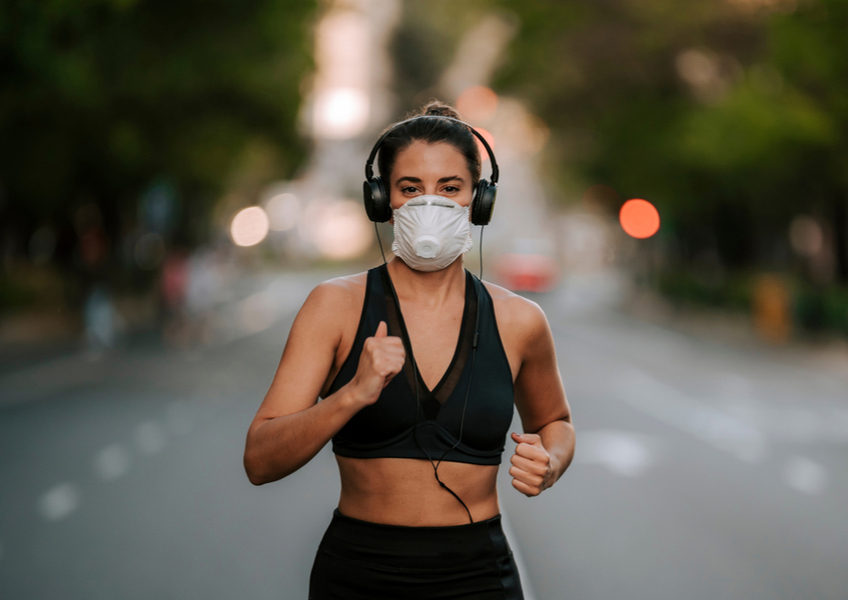Weight gain and COVID: Tips for shedding ‘the quarantine 15’

Returning to an exercise routine after an extended period of social isolation during the COVID-19 pandemic can lead to unexpected physical problems if you're not careful. (Stock image)
By Mike Scott, mscott@stph.org
By now, most of us are familiar with the side-effects of contracting COVID-19, but there’s a not-so-uncommon side effect being experienced by many people who haven’t caught the novel coronavirus.
Whether you call it the “quarantine 15” or “the COVID 19,” the struggle against weight gain for those who are socially isolating themselves during the pandemic is a real thing – and, according to St. Tammany Health System Rehab Services Manager Jay Morange, it’s a real threat to people’s health.
“Everybody’s been locked up in their house; gyms have been closed,” Morange said. “You put on ‘the COVID 19’ – you’re 19 pounds heavier – (and) your body’s not used to that.”
That extra weight can lead to problems as people try to whip themselves into shape as gyms reopen as part of Phase 2 of the state’s COVID-19 reopening, said Morange, who visited The Lake-94.7 FM to offer tips for the until-recently couchbound.
One key for those trying to ease back into an exercise routine, Morange said, is to listen to your body.
“With working out, there’s good pain and bad pain,” he said. “Good pain, I say, is soreness. Usually when you’re first working out, you’re going to be using muscles you haven’t used in four months – or four years or your whole life.
“Bad pain is when you’re working out, or after you’ve worked out, and the pain is persistent.”
That kind of persistent pain, he said, could indicate an issue with muscle overuse, a stress fracture or other problems.
Diet is another issue that can affect people as they return to a workout routine. Oftentimes, stress – like the kind with which we’ve all become familiar during the COVID pandemic – can lead people to make unhealthy nutritional choices, such as eating too much fast food or junk food, or perhaps just eating too much food, period.
Either, he said, could lead to injury if it affects someone’s technique while working out.
“Diet is huge,” Morange said. “That could be half or even more than half of your healthiness.”
If someone suspects they might have suffered a workout injury, Morange said physical therapists such as those with whom he works at the STHS Therapy & Wellness Center at 1 N. Azalea Drive just south of St. Tammany Parish Hospital, can help.
They’re considered primary care providers, he said, and thus don’t require a doctor’s referral for a patient to make an appointment. Often, minor problems can be addressed with physical therapy within 90 days. If a problem persists longer than that, Morange said, a referral to a specialist may be necessary.
But to avoid that, people should simply listen to their body and practice a little patience when trying to get back into pre-COVID shape.
"You need to be careful to take care of yourself while you’re getting back into a workout routine,” Morange said.